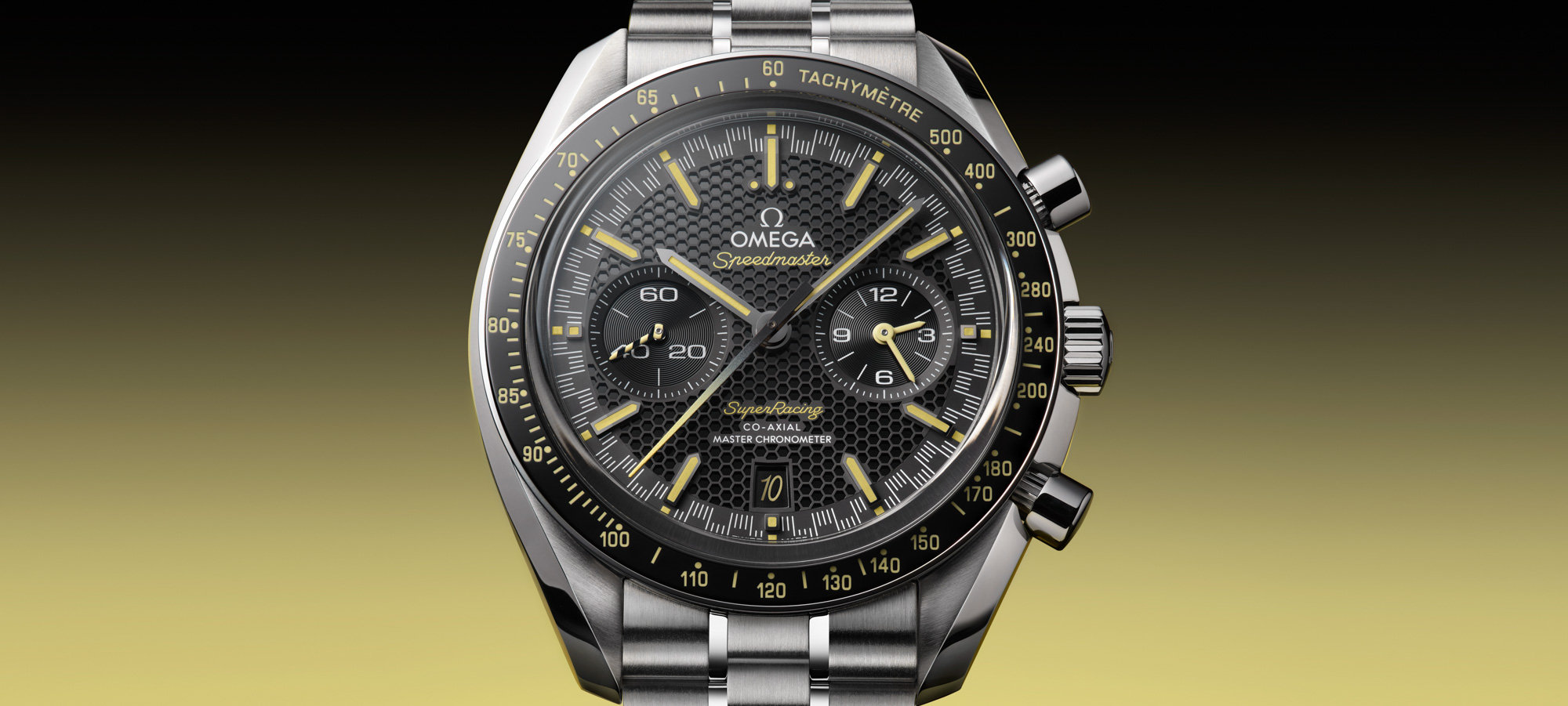
Omega has been among a handful of watch brands that have made it their mission to push the timekeeping performance of mass-produced luxury timepieces — a completely different challenge compared to efforts performed on the level of ultra-low production volume horological exotica. Today, Omega shows its relentless dedication to movement innovation by introducing the Omega Speedmaster Super Racing with a Spirate System and an unparalleled 0/+2 accuracy rating.
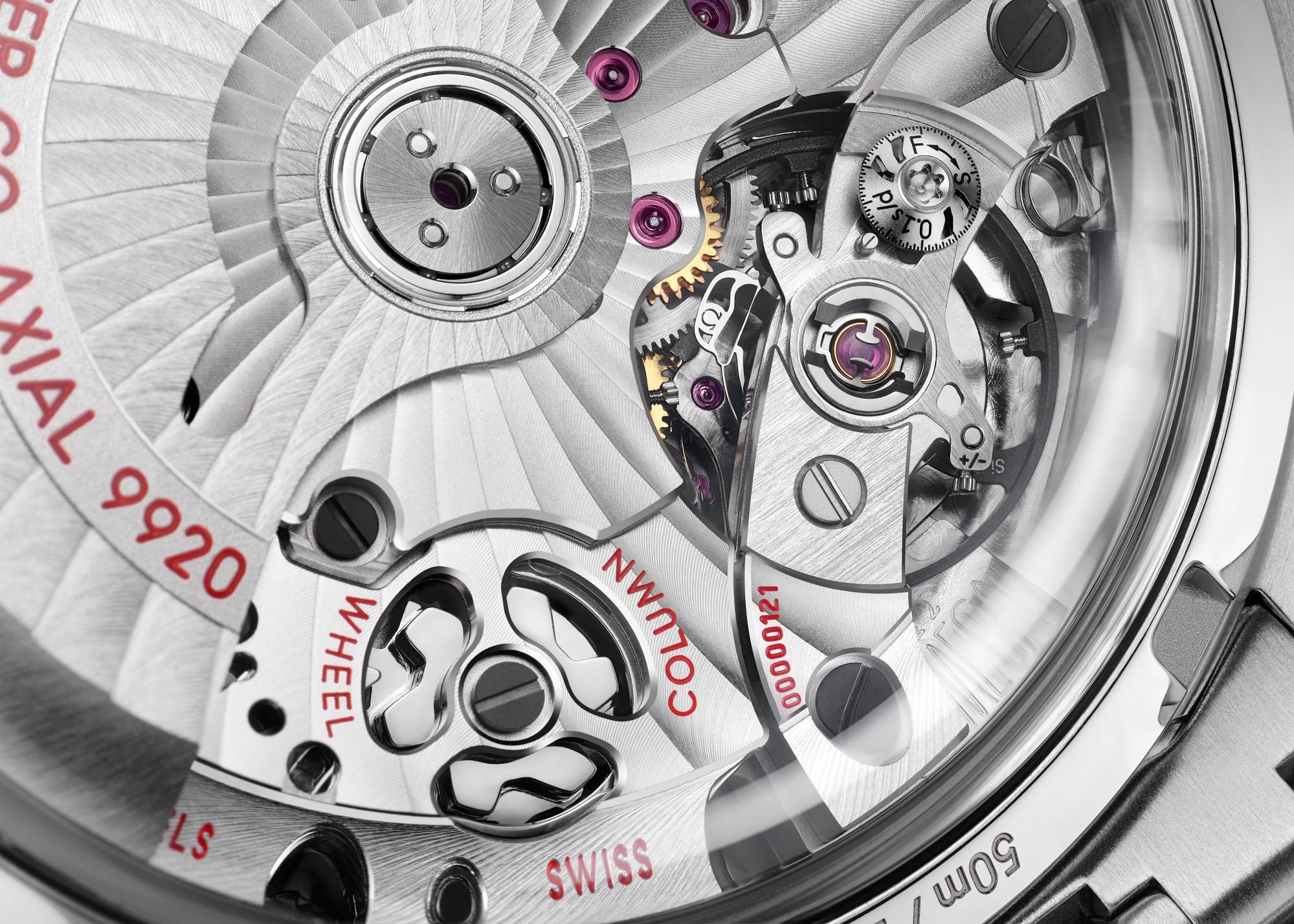
In 2008, Omega released its Si14 balance spring, created to resist the ever-increasing magnetic forces that are part of our lives. Named after the chemical symbol and atomic number of silicon, the new spring was designed to significantly reduce deviation and improve chronometric stability. In late 2014, we debuted and explained its new Master Chronometer certification and its all-encompassing METAS-certified testing procedure. To be fair, these two — the 15,000 Gauss anti-magnetic, silicon-equipped movements and the stringent and thorough testing procedures — already make for a unique combination that neither Rolex nor any other of Omega’s competitors could match (falling behind when it comes to anti-magnetic claims, specifically).
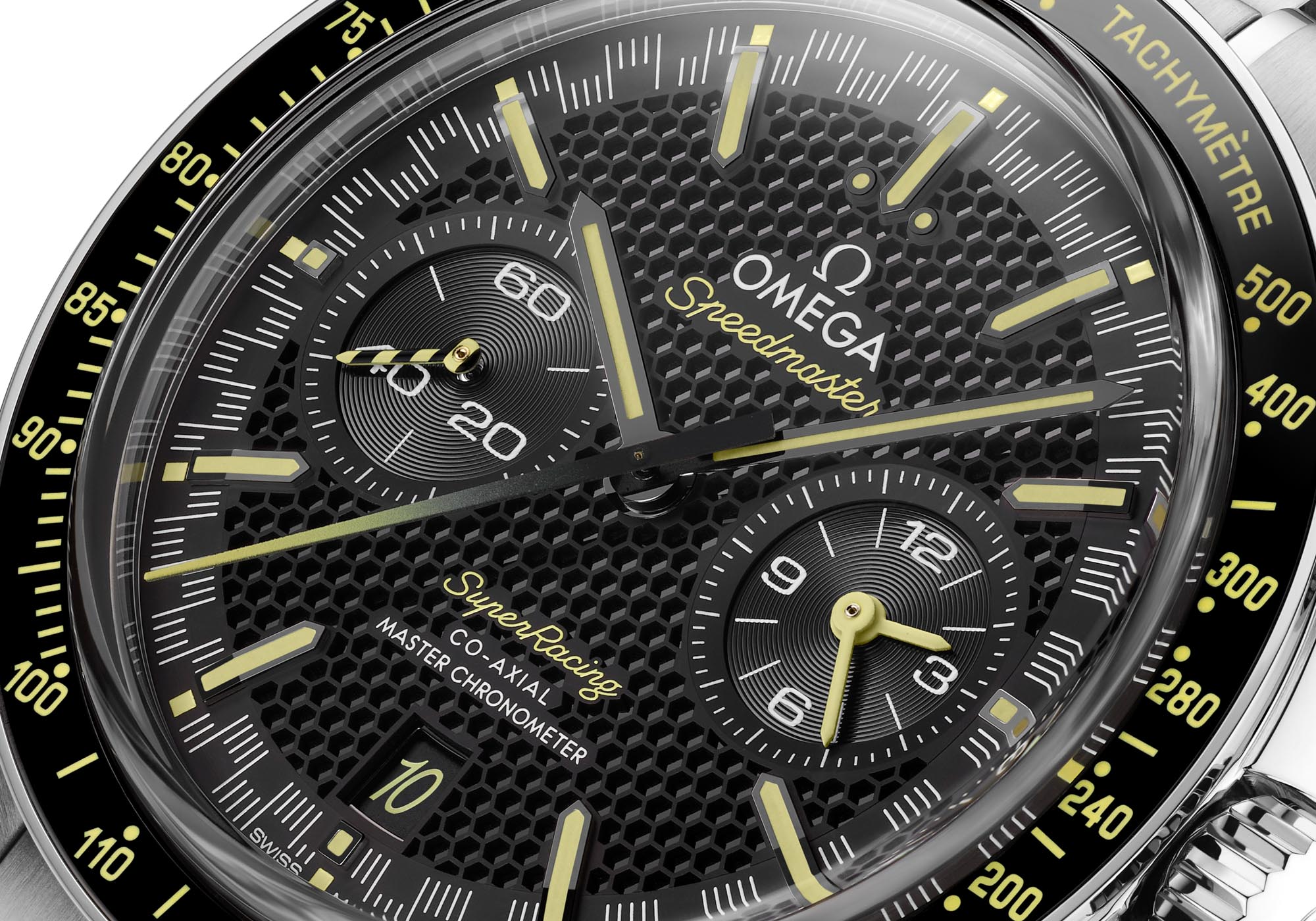
Omega’s push for yet greater timekeeping performance continues today with the introduction of the Spirate System. Motivated to achieve a certified precision of only 0/+2 seconds a day — by all certainty to beat Rolex and its much-advertised -2/+2 accuracy rating — Omega set off to patent an anti-magnetic spiral with optimal geometry for ultra-fine rate adjustments. Designed with a high-precision articulated structure with flexible bearings, the watchmaker can adjust the stiffness of the balance spring, ultimately being 10 times more efficient than what free-sprung balances offer. Omega claims a precision adjustment in the increment of just 0.1 seconds.
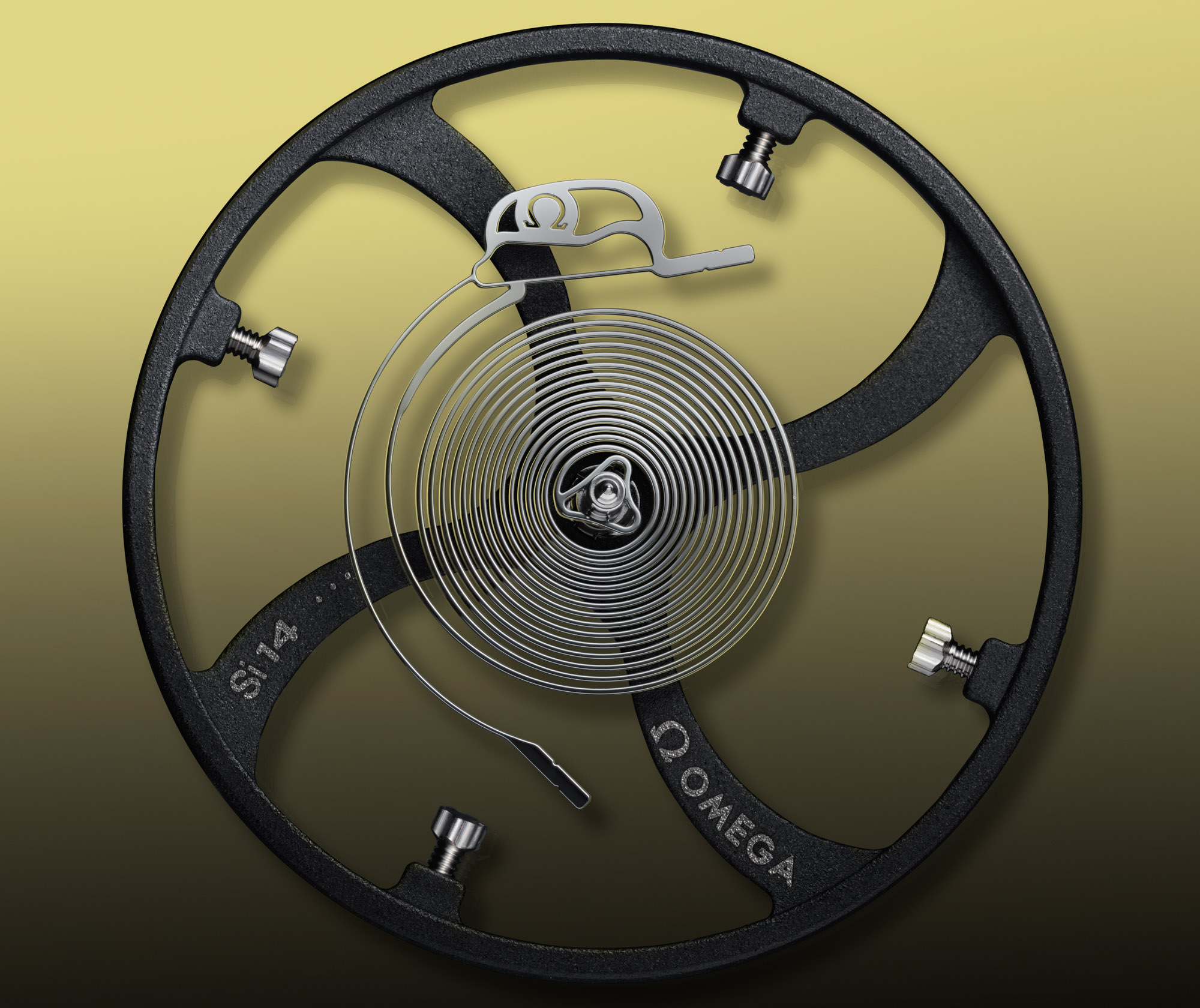
Each innovative spiral is made from a silicon wafer, utilizing an internal manufacturing process called DRIE (Deep Reactive Ion Etching). Omega drew on both the technical resources of the Swatch Group — its parent company — and on the existing know-how already engineered into the latest generation of its calibers. The brand clarifies that the 0/+2 seconds daily precision is made possible at a large scale by the industrialization of the Spirate System — so apparently, the goal here is not to produce a handful of observatory-grade chronometers, but to eventually have a large variety of models offer such performance. That said, we have yet to see how well this industrialization proceeds, but at least the desire is there.
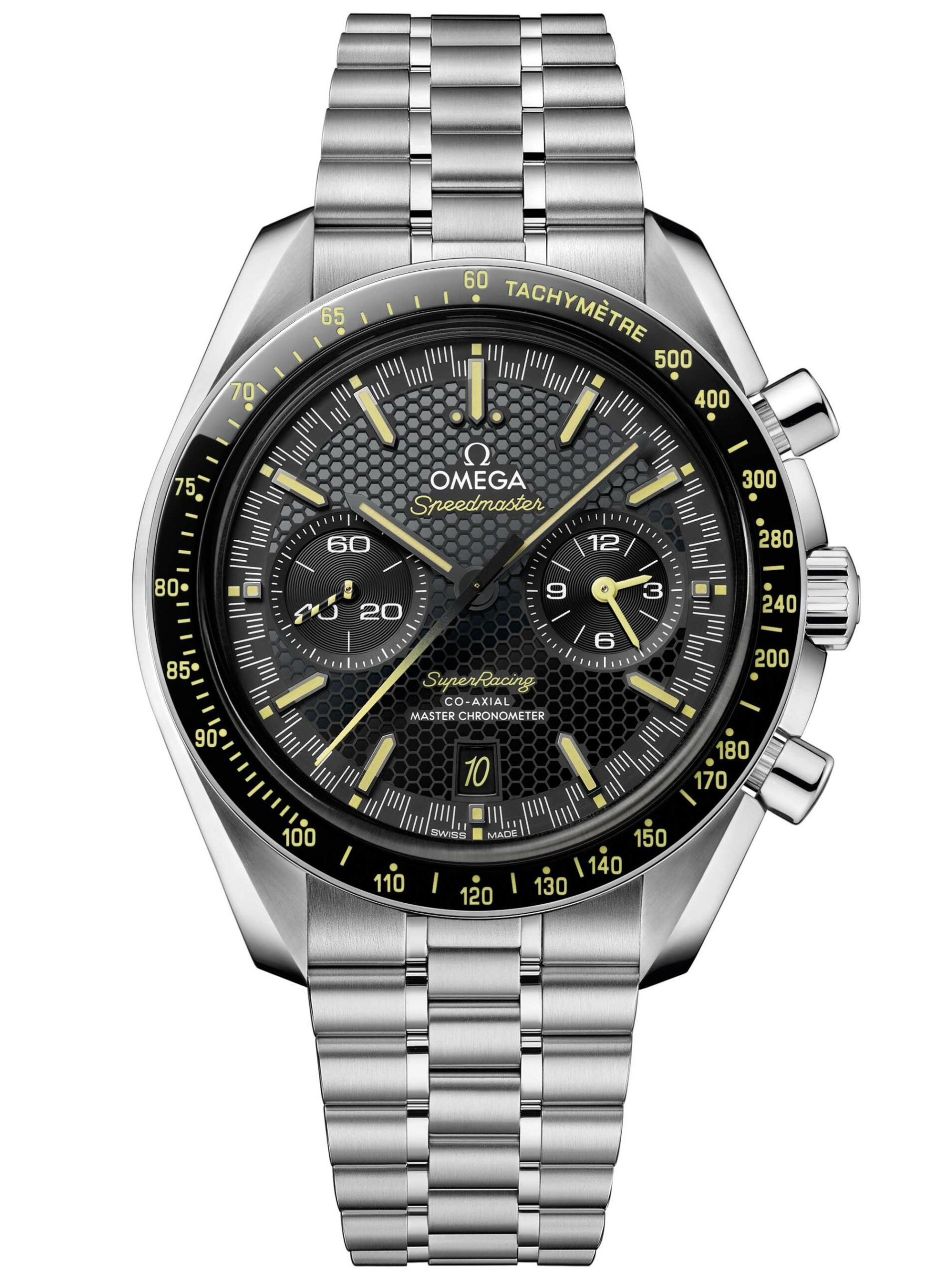
Introducing the Spirate System to the world is the Omega Speedmaster Super Racing watch (Reference 329.30.44.51.01.003) and its Omega Co-Axial Master Chronometer Calibre 9920. The Speedmaster Super Racing measures 44.25mm-wide, a beefy 14.9mm-thick, has 21mm lugs, a sapphire crystal on the front and back, and a 50m water resistance rating. For the time being, there is just one reference, characterized by a black honeycomb dial — referencing a concept timepiece on display at the Omega Museum which survived magnetic fields of 160,000 Gauss. Eagle-eyed Omega fans will recognize the black and yellow-striped seconds hand at the 9 o’clock position, a nod to the Aqua Terra >15’000 Gauss watch of 2013. Another reminder of the 10th anniversary of that pioneering piece is the funky 10 on the date display.

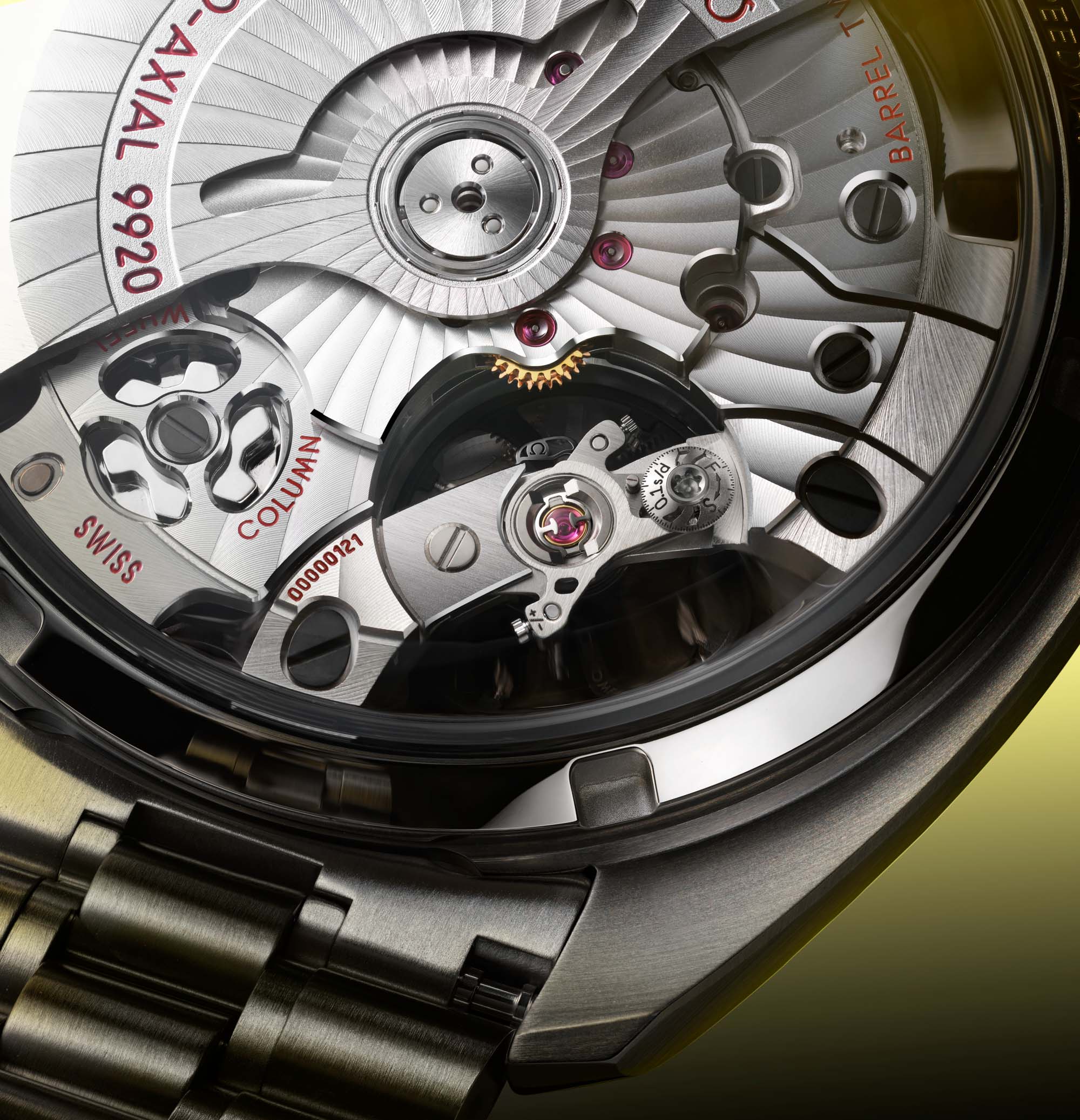
In conclusion, it is safe to say that the luxury watch industry, whose products mainly operate based on centuries-old inventions, namely the Swiss lever escapement (invented in 1754) and the hairspring (first presented by Christiaan Huygens in 1675), is still actively looking for the latest and greatest ways to enhance the performance of its fundamentally archaic products. And that’s just absolutely wonderful, and certainly among the key reasons why many of us watch enthusiasts appreciate modern watchmaking as much as we do.
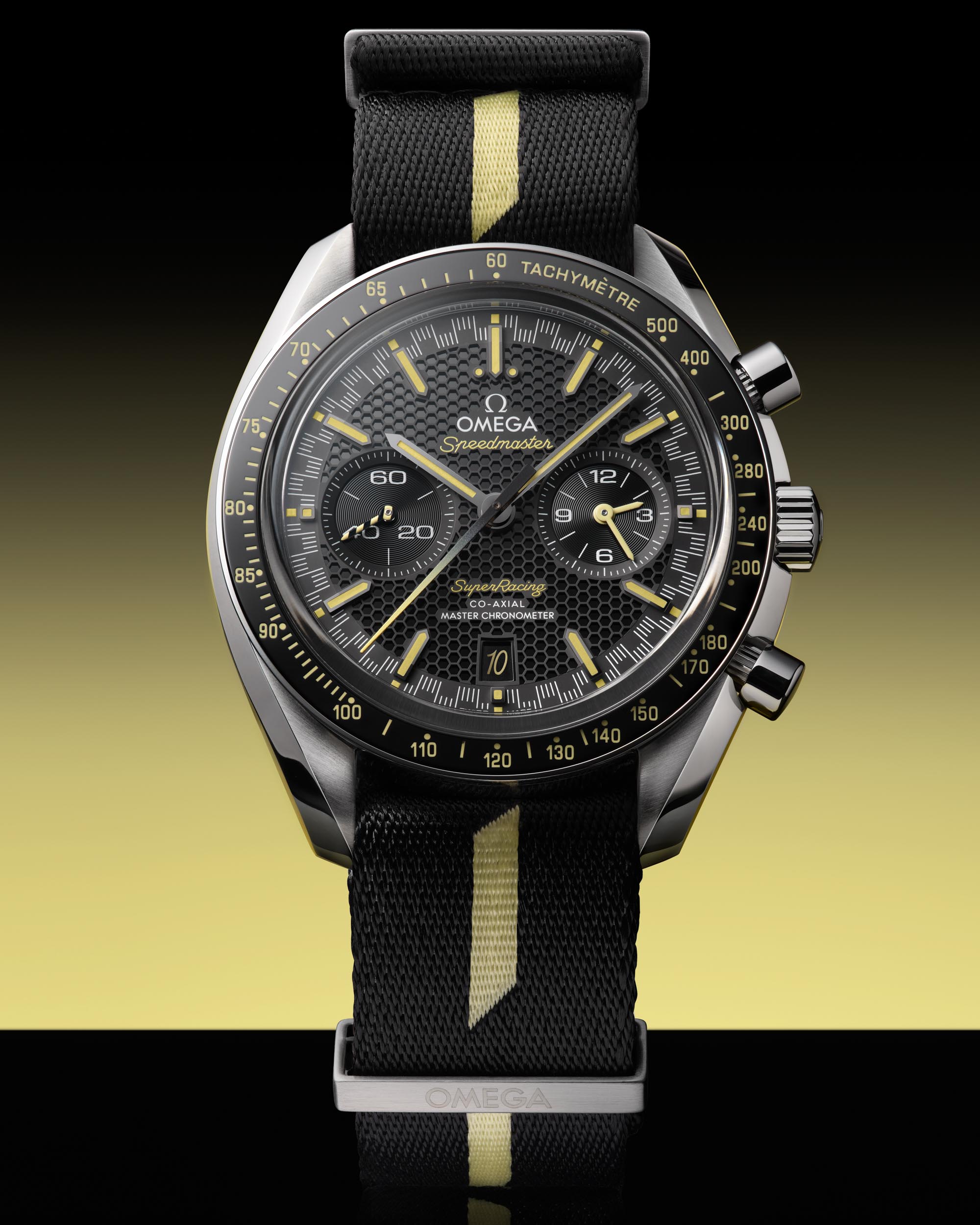
The off-the-wrist home, as Omega calls it, for the Speedmaster Super Racing is a honeycomb pattern Speedmaster watch box in black with yellow stitching, including a recycled NATO strap and a strap-changing tool. Price for the Omega Speedmaster Super Racing is 10,200 Swiss Francs, around 5,000 Swiss Francs less than a steel Rolex Daytona.You can learn more at the brand’s website.








